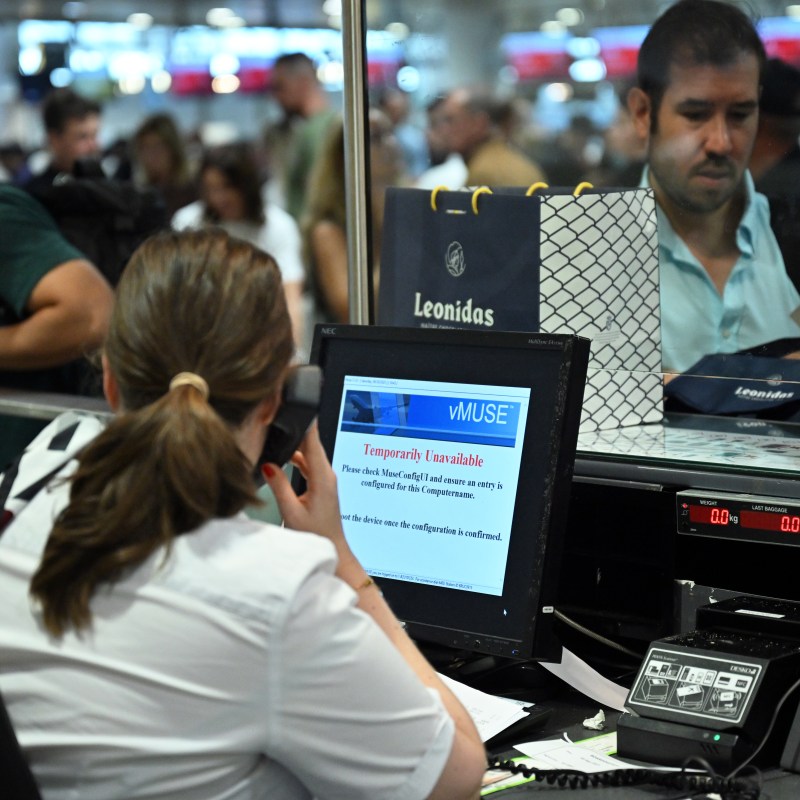
On September 21, multiple airport hubs across Europe went down as a cyberattack grounded flights and disrupted operations.
Videos by TravelAwaits
Airports from Berlin to Dublin faced challenges as disruptions spread. Only flights at London’s Heathrow International Airport were canceled due to the attack, but the effects were immediate and widespread across the continent, disrupting travel between some airports throughout the weekend.
Many flights were delayed due to the cyberattack targeting various boarding and check-in software for multiple airlines. The main target of the malicious software was check-in automations. The actual software is a common hack called ransomware, which can only be reversed once criminals are paid in Bitcoin.
Since the attacks, which included previous incidents on Friday, September 19, agencies across Europe have narrowed down suspects. One article from The Guardian reports that a man from West Sussex has been taken into custody by UK authorities.
A closer look at Collins Aerospace
The cyberattack focused on Collins Aerospace software, a US company that provides services for various air travel groups in Europe, including check-in automations via their Muse product.
On Monday, Collins Aerospace asked its partners in Europe to cancel 140 of 276 outbound flights, as reported by the BBC. However, the company is referring to the attack as a ‘cyber incident’, and has taken painstaking steps to manually rebuild and relaunch systems, which can’t be done remotely.
Meanwhile, in the UK, the National Crime Agency has been on the hunt for suspects. On Tuesday evening, a suspect was arrested in West Sussex but has since been released on conditional bail.
